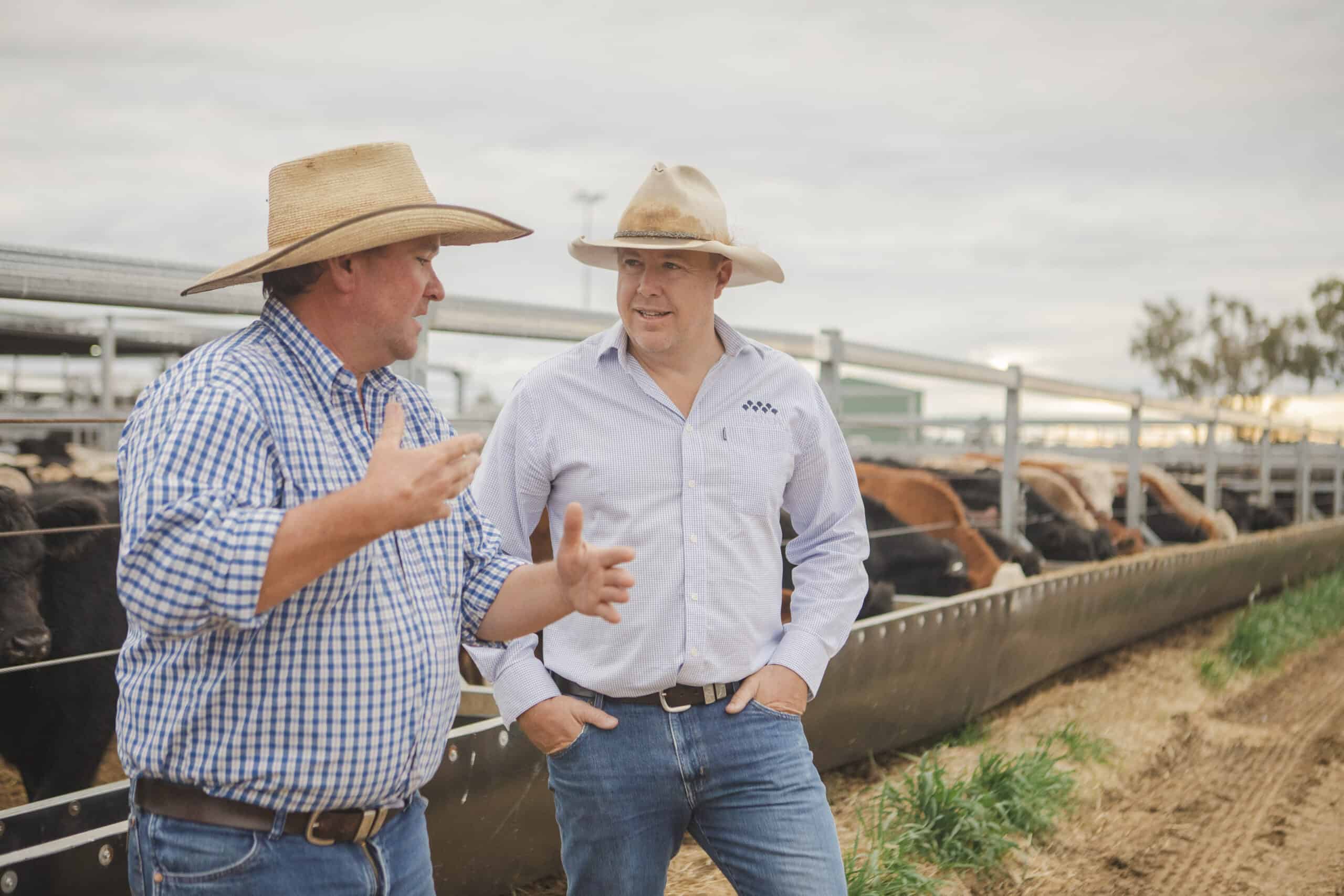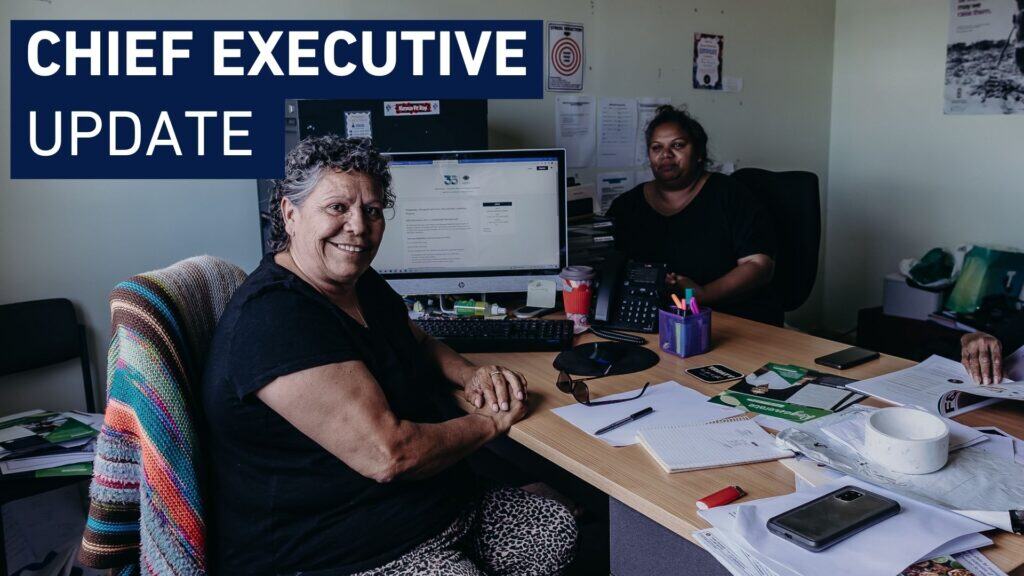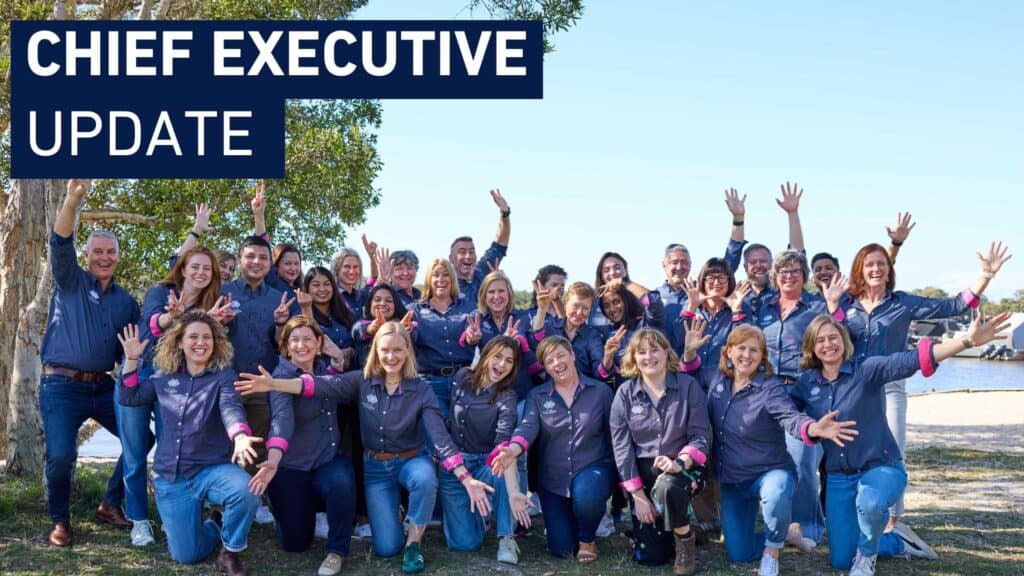For generations, regional Australians have been caught between a rock and a hard place. They want to stay in the community they love, but good jobs and education opportunities lure them to the cities. This movement of bright, young and motivated people away from the areas that need them toward metropolitan Australia is commonly called ‘the brain drain.’ But a concerted effort to plug the conduit has come from the Australian Rural Leadership Foundation (ARLF) and its partners, including Telstra.
Graduates are leaders in their field and voices for their industries. In a nutshell, the Australian Rural Leadership Program champions the champions.
“So many of the ARLP alumni have bounced off one another and leveraged each other’s skillsets for mutually beneficial partnerships, and that’s really important to us as ARLP partners,” says Nicole Ward, the Senior Regional Corporate Relations Manager with Rural and Regional Affairs at Telstra.
“Through broader regional engagement with stakeholders, alumni pop up all the time, and are around the organisations that we consistently deal with and so there’s a connection there. It’s through alumni members we’ve been able to establish our own regional advisory councils.”
The connections developed during the ARLP compound success for all the parties involved. Regional leaders become connected with mentors, other graduates and industry leaders from across the country, bringing together industries, cultures and communities. Nurturing these strong connections results in strong social capital networks that share knowledge and encourage innovation and entrepreneurship and allow more community members to tap into collective wisdom and expertise. This interconnectedness also facilitates the exchange of ideas, which can spark creativity and drive regional growth. Connection is Telstra’s core business. The telco has enjoyed a 30-year affiliation with ARLP, first by sponsoring its own people to participate in the leadership program, but now insisting on an open recruitment. This means entire regional communities can benefit from the ARLP alumni as they return to their roles with reimagined ways of influencing those around them through stronger networks.
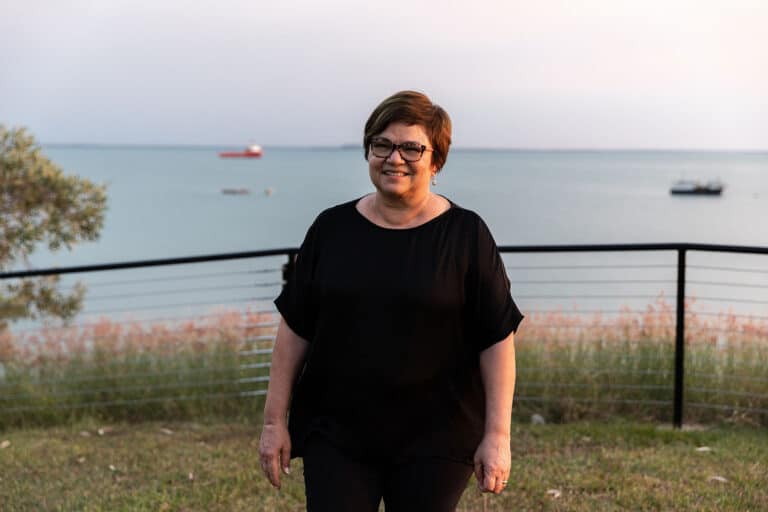
Lauren Ganley: Choosing kinship over the brain drain
The communications giant means more to her than a job title. For Lauren it’s a part of her identity. A proud Kamilaroi woman, she spent her childhood in the sticky Darwin humidity with a group of influential indigenous women from all over Arnhem Land.
“Those ladies would take us hunting and fishing and taught us how to make damper. They passed to us the culture of their community and it was very rich.”
Her tenacity with the traditional languages and determination to bring people together meant she was a logical choice to head Telstra’s Indigenous Directorate, with the company sponsoring her to complete the ARLP course in 2011.
“It was life changing. I’ve done so much learning and training on the job, but that course really challenged me. It was a fascinating process,” she says.
One of the key leadership practices of ARLP is authenticity and connection to self. Not only does understanding that connection mean enhanced empathy for those engaged participants but facilitates meaningful connections with others. For Lauren, this was her most valuable learning.
“We were exposed to many social problems in Australia that I had no idea about. We saw homelessness and poverty in the southern States that I never knew existed and it completely changed how I thought about it,” she said.
This exposure broadened her empathy across several communities, and she gained a new perspective that she took back to her workplace. She took to mentoring women in business, determined they start their careers armed with her newfound knowledge and position themselves as well rounded individuals early in their careers. She built networks that supported those in need and joined boards that highlighted innovation in remote and indigenous Australians. These roles cumulated in her being named one of Australia’s Most Influential Women in 2014.
“It’s the best course I’ve done for my own personal growth and development and has made me a stronger fighter for what I believe in and what we (as a broader community) can do for remote Australians,” Lauren said.
“I learnt about myself and how I engage with other people and gave me the confidence to bring groups together. I apply these skills every day through my role with Telstra and the board work I do with remote Australia.” But more than anything, it honed her connection. Connection to place, to the experience of the ARLP, connection to self and connection to the broader community.
“Being connected and considered influential made me realise I really did have something meaningful to say. It gave me the courage to voice my opinion without fear of people challenging it. It doesn’t matter if you're right or wrong; it's your value set.”
Lauren Ganley - ARLP Graduate Tweet
While Lauren grew up far from the traditional lands of her Kamilaroi people, the influence of the women in her adoptive home of Darwin honed her sense of belonging so much so, she couldn’t bear to leave. Lauren instead carved an influential career out for herself and built a strong network of family and friends. By remaining true to her own identify and heritage, she unknowingly mirrored the ARLP’s goals of retaining social capital in rural Australia and applying the same mantra to her work, board roles, and social connections, including her work with Community First Development, the Darwin Festival, Kakadu Tourism and the Batchelor Institute of Indigenous Tertiary Education.
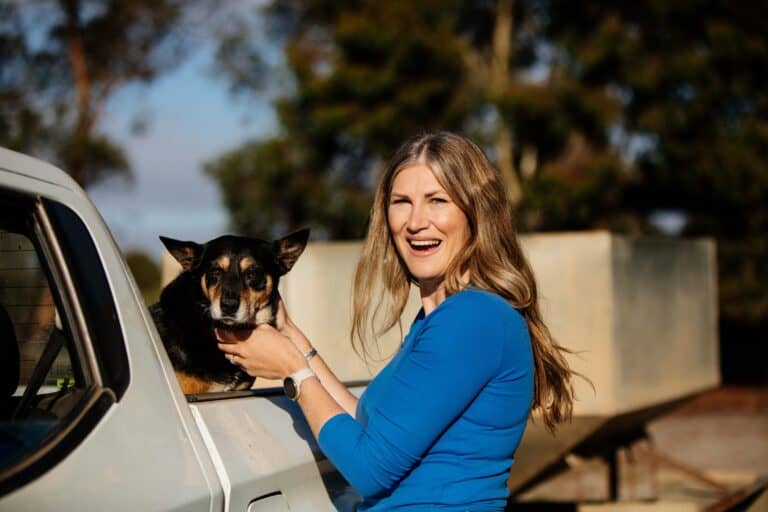
Bec Bignell: Fostering regional collaboration through media
If connection was considered a vocation, Bec Bignell has found her life’s calling. As the founder of Cockatoo Co Lab, an independent media company dedicated to shining the light on the depth of skills and expertise in regional Australia, Bec has spent decades literally bringing people together.
Her unique vision and passionate to change the narrative about regional Australia made her an ideal fit for the Australian Rural Leadership Program, graduating in 2019 from Course 25.
For Bec, the course proved invaluable because it instilled a fresh self-confidence, the ability to reflect and the realisation that leadership was pivotal to her role. The starkest example came soon after she finished the ARLP course and wrote and produced the Homespun television series on her family’s working farm.
“It was ambitious and pushed boundaries and I don’t think I would have achieved any of it without the learnings from the ARLP,” she said.
“I didn’t consider how important leadership is in film and TV until I did the course. It’s an incredibly overwhelming job to write, crew, cast, film, edit and get out into the world a show on a slim budget.
“It was ambitious and pushed boundaries and I don’t think I would have achieved any of it without the learnings from the ARLP.”
Bec Bignell - ARLP Graduate Tweet
There were moments of high energy and pace, difficult conversations, any number of problems that you are constantly having to solve and resolve and you want to be able to reinforce the kind of culture you want to create.”
Bec leaned heavily on the skills she gained from the leadership course and like many of her peers, the learnings continue long after the graduation ceremony.
“I didn’t realise that leadership was going to manifest in that way. I had always thought about leadership as someone in the government or the shire, not someone like me. I very quickly realised you need it for the projects that I work on,” she said.
“I don’t think it matters whether you are running the show or contributing to it, I think leadership is important for everyone. To me it’s not the hierarchical thing, it’s the contribution everyone makes. There’s been some challenging times since I finished the course and there’s been some skills I learnt in the ARLP that I’ve been able to apply in those contexts that have made me a better leader in my family unit, within the local community and then within the work that I do and the impact I can have through the stories I am creating.”
But it’s the ongoing influence of her sponsor Telstra that demonstrates real change.
“Arts and culture are primary aspects of regional life, and the importance of telling our stories is paramount to the success of our societies,” she says.
“Having Telstra be involved in the work we do has been critical- a real gamechanger. I’ve been patronised in certain circles because the depth of skill in regional Australia hasn’t been understood. Telstra’s support has validated that work on a level I never expected.”
From her home base in Western Australia’s Kojonup region, Bec’s been involved in the production of several nationally significant projects including the Hollywood blockbuster Blueback in 2021. She says the only way barriers are going to be broken down between is to make connections through meaningful channels, like the arts.
“People in the cities don’t understand the regions or the people in them, not because they don’t care, but because their stories and those of the food and fibre they produce aren’t in their face. We need to work with organisations such as Telstra and utilise their extensive community touchpoints throughout the country to build partnerships that are mutually beneficial.”
Bec’s most significant example of mutual benefit was setting up the production for Blueback.
“Because of my Telstra connections I was able to ensure the cast and crew of the movie had access to reliable, fast internet. We were a paperless set, which meant updates, communication and scripts needed to be distributed widely and immediately. It also meant that people from out of town were able to communicate with their families and not feel isolated. This is paramount to bridging the gap, and highlighting that the regions are a wonderful, vibrant part of our culture as Australians and Telstra made that happen.”

Adam Arndell: Accountability and growth through Leadership
The depth of connections fostered during the ARLP is a constant that many graduates keep coming back to. Tamworth business owner Adam Arndell completed the ARLP in 2020 as part of Course 26, sponsored by Telstra.
Adam has been amazed at his sponsors’ active and continual involvement. As a marketing and PR professional, he values networks and praises Telstra’s commitment to bringing their sponsored alumni together regularly- separate to the ARLP activity.
“I’m lucky that Telstra continue to be so engaging. I’ve recently participated in their regional telecommunications policy workshop, I’ve been part of their regional connectivity program, and they are always bringing our regional perspectives into work that they do,” he said.
Participants in the ARLP learn that leadership inherently involves navigating unfamiliar territories, facing challenges, and making difficult decisions. By being comfortable with the uncomfortable, leaders open themselves up to continuous growth and learning. They willingly step outside their comfort zones, embrace new experiences, and seek opportunities to expand their knowledge, skills, and perspectives.
“Throughout the course we were constantly challenged to be comfortable with being uncomfortable. I was very regularly uncomfortable, and I wasn’t expecting that. It made me step into things I’d normally avoid and develop a level of comfort with taking on new challenges and being emotionally and mentally challenged.”
He says the personal accountability he developed through the ARLP is the reason that his business, C7 Communications, built alongside his business partner Sara Crowe, enjoyed a 60 percent growth in 2022 and will open an office in Japan this year.
“If you’re always just standing back and waiting for someone else to do something, quite often things don’t happen. And if you put it off, then you never do it. This growth could quite easily have been missed, but we worked hard and were accountable to the challenges of making it happen,” he said.
By holding himself accountable for making decisions like the international expansion in tandem with his community and family obligations he was able to achieve far greater results than he imagined. This included building a workplace culture that supported collaboration, creativity and connection, all principles honed during his ARLP experience.
As part of his ARLP journey, Adam was involved in a group project aimed at developing an Australian Wellbeing Index to drive more meaningful and targeted government investment in the regions. Like all ARLP cohorts, the team activity was designed to highlight the importance of teamwork, collaboration and working with diverse individuals. It also gives participants the ideal opportunity to apply the learnings they made throughout the course. Adam’s group was no exception. While he was initially reluctant to pursue the idea, he leaned into the group’s diverse range of opinions and experience and eventually became a willing participant long after the official project was over.
“As leaders we need to be vulnerable, open and transparent and we need to show empathy as well. Our group wanted to push for a wellbeing index that can demonstrate to the nation what is happening in the regions. It would mean using an index as opposed to just using economic indices to measure the prosperity of regional communities. Regional, rural, and remote Australia has really been a powerhouse in driving national economic success for Australia. But governments have always relied on economic metrics like GDP to guide their investment in policy decisions,” he says.
"As leaders we need to be vulnerable, open and transparent and we need to show empathy as well."
Adam Arndell - ARLP Graduate Tweet
“We want investment in things that go beyond just infrastructure and services. And that’s where this sort of wellbeing indices come into it because it looks at things more around like culture, indigenous wellbeing, work life balance, justice and fairness and environment sustainability.”
Utilising their broad networks and circles of influence, Adam’s group are continuing their work outside the program.
These graduates are the epitome of what Telstra strives to deliver to its regional customers and communities. For decades it has prioritised building a community around the participants they sponsor, seeing the value in nurturing ongoing partnerships and sharing skills, such as bringing internet to Bec’s movie scene, or collaborating with Adam during their regional connectivity program.
Ben Gursansky is the head of Telstra’s Rural and Regional Affairs and deeply committed to not just the continuing development of the ARLF program, but the company’s role as a long-term partner.
“We’ve taken an approach where we offer our scholarship and our placement to a broad range of people from any industry or background. That’s really important to us, because it gives us an opportunity to support people that may not otherwise have an opportunity to do the program, just because of where they work or their background. And it also gives us a great diversity of people, that we have people from different creative backgrounds or professional backgrounds, different walks of life, different industries, and it gives us flexibility in who we offer the scholarship to,” he says.
“Their diverse backgrounds lead to more innovative ideas and solutions and even partnerships. We’ve had several projects delivered with our graduates such as Bec. We recognise their skills in the field and can offer them projects to work on and vice versa.”
But Ben sees a bigger picture. Not just value for Telstra and the people it supports, but he highlights the benefits of the mutually beneficial partnerships between ALRP participants and the organisations who support or sponsor them.
“If any company or industry group is thinking about sponsoring an ARLP participant, then I would say absolutely invest; particularly where they’ve got an interest in the future of regional, remote and rural Australia. These partnerships are building up the future leaders we need in communities and industry to continue to advance as a society,” he said.
The ARLP and Telstra have equipped Lauren, Bec and Adam with new perspectives, leadership skills and an expanded network. They’ve all been given an opportunity and have gone home to make their regional communities better for everyone. Lauren, Bec and Adam are living proof that the ripple effect that comes from investing in social capital is repaid and passed on. Communities are made richer and more vibrant places and ultimately, regional Australia is the winner.


